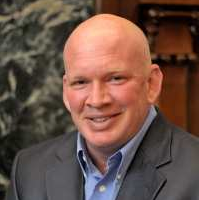Jeff Douglas, University of Illinois Urbana-Champaign
Some dichotomies in restricted latent class models for diagnostic classification
2023 Presidential Address
Restricted latent class models have been studied for use in formative educational assessment, psychiatric diagnosis, health quality of life assessment and other applications. We focus on several important dichotomies that arise in these areas. First, a distinction between nonparametric and parametric modeling is considered. This naturally leads to a bias/variance tradeoff that brings up the understudied topic of misspecified latent class models. Next exploratory models are compared and contrasted with confirmatory models and the strengths and weaknesses of each are reviewed. Model identifiability plays a critical role in each and is an especially difficult topic for exploratory models. Some recent developments and general methods for studying identifiability are discussed. A third dichotomy concerns the granularity of the latent variable that defines the classes and whether it should be course or fine, or perhaps even continuous with an uncountable infinity of values. Data examples are given that touch on topics such as mixed data-types, binary versus ordinal latent attributes, longitudinal models and new areas of application.
About the Speaker
Dr. Jeff Douglas is a Professor of Statistics at the University of Illinois in Urbana-Champaign. He earned his PhD in Statistics in 1995 with a dissertation on the asymptotic theory of nonparametric item response function estimation. In 1995 he began as an Assistant Professor of Biostatistics at the University of Wisconsin-Madison, where he held an NIH grant in which he developed models for jointly fitting survival times and longitudinal item response data for applications in cancer clinical trials. He also served in the University of Wisconsin Comprehensive Cancer Center and was biostatistician for Phase 2 and Phase 3 cancer chemoprevention trials. He returned to the University of Illinois in 2001 and has focused on psychometric research with funding from the Spencer Foundation and the National Science Foundation. His primary areas have been response times in item response theory, nonparametric and parametric techniques for diagnostic classification, and hidden Markov models. He has authored 70 publications and has been research supervisor for 16 doctoral students. In addition, he has twice served as Chair of the Department of Statistics at the University of Illinois.


